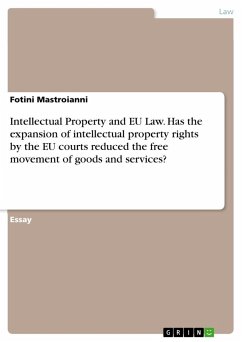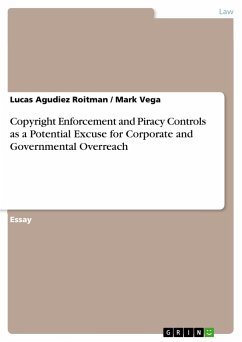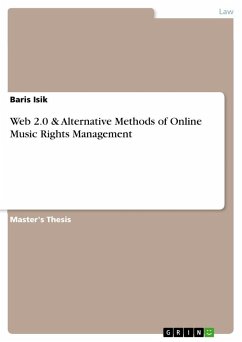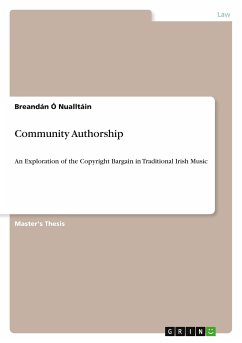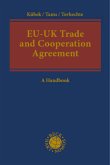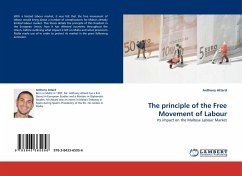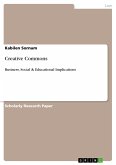Essay from the year 2013 in the subject Law - Media, Multimedia Law, Copyright, , language: English, abstract: In the present essay, intellectual property and free movement of goods and services will be discussed and it will be examined how and to what extent the intellectual property right law affects or does not affect free movement of goods and services.Intellectual property law is a branch of private law and regulates the protection of an object with intangible nature. The distinction between an intangible asset and the material carrier is known and runs around the law of intellectual property. The album as a physical body is a corporeal object is outside the field of intellectual property, as opposed to composing music recorded over it. The same applies for the printed versions. Intellectual property does not protect the material itself but the scientific work that is reflected on it.A fundamental principle of the intellectual property right law is the protection of independence of the value and purpose of the project. This work is protected regardless of its illegal or immoral character. This rule is now expressly enshrined in Article 2 § 4 of the Act and applies to all projects.On the other hand, the free movement of goods is the first in the order listed in the Treaty of the four fundamental freedoms of the EU and is regulated by Articles 28-37 TFEU as Title II of its Part Three ("Internal policies and action Union ").From these articles, the first two, namely Articles 28 and 29, seem to have introductory nature and general scope of implementation, while the remaining eight are divided into three chapters as follows: Chapter 1, Articles 30-32, "The customs union" Chapter 2, Article 33,"customs cooperation", Chapter 3, Articles 34-37," The prohibition of quantitative restrictions among Member States ".Article 28 states that the Union shall comprise a "customs union" and defined the meaning of the latter (section 1), furthermore, it is bounded the substantive scope of implementing the critical for the free movement provisions which are the prohibition of customs duties and equivalent taxes provision of Article 30 and all the provisions of Chapter 3, i.e. it is bounded the cycle of products that fall under these provisions (section 2) and Article 29 focuses on the latter issue, but especially for products from third countries.
Hinweis: Dieser Artikel kann nur an eine deutsche Lieferadresse ausgeliefert werden.
Hinweis: Dieser Artikel kann nur an eine deutsche Lieferadresse ausgeliefert werden.

